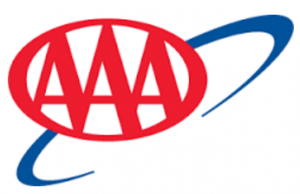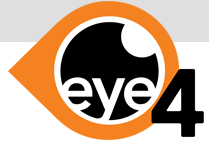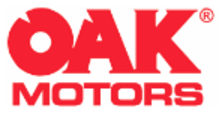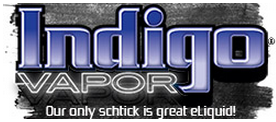South Bend, Indiana – An Indiana trademark attorney for Rieth-Riley Construction Co., Inc. of Goshen, Indiana (“Rieth-Riley”) sued in the Northern District of Indiana alleging that Jeffrey  Kresnak and Superior Asphalt, Inc. (“Superior”), both of Michigan, infringed the RIETH-RILEY trademark, Trademark Registration No. 1,659,123, which has been issued by the U.S. Trademark Office.
Kresnak and Superior Asphalt, Inc. (“Superior”), both of Michigan, infringed the RIETH-RILEY trademark, Trademark Registration No. 1,659,123, which has been issued by the U.S. Trademark Office.
Rieth-Riley, founded in 1916, provides many services under the Rieth-Riley brand, including highway construction, asphalt and concrete paving, site preparation and excavation, bridge construction, underground utilities and drainage construction, asphalt and concrete recycling, curb and sidewalk construction, mining and aggregate processing, and providing sand, gravel and other aggregates for construction projects.
Superior, in business for over 30 years, is in the asphalt manufacturing, supplying, paving and maintenance business. It provides its services to residential, commercial, manufacturing and municipal customers. Defendant Kresnak owns Superior. Rieth-Riley indicates that it considers Superior to be a competitor.
Both companies maintain websites to promote their companies. Rieth-Riley operates its website at www.riethriley.com. Superior operates its site at www.superiorasphalt.com/. Rieth-Riley contends that Superior also purchased and began operating “rieth-riley.net” in violation of Rieth-Riley’s intellectual property rights in the trademarked name; it further indicates that this accused domain name resolves to Superior’s website. Rieth-Riley states that it attempted to reach an agreement with Defendants to cease using the accused website but that, in response, Defendants indicated that they would do so for $10,000.
Rieth-Riley contends that Defendants are unlawfully profiting through their use of the Rieth-Riley trademark. Specifically, Superior is accused of using the rieth-riley.net domain name with a bad-faith intent to profit by redirecting Internet traffic intended for the Rieth-Riley website to Superior’s website.
Rieth-Riley also states that Defendants’ unauthorized use of the Domain Name is likely to cause confusion or mistake or to deceive the consuming public as to the affiliation, connection, association or sponsorship of Superior with Rieth-Riley or the Rieth-Riley Mark, or as to the origin, sponsorship, or approval of Superior’s goods, services or activities by Rieth-Riley or the Rieth-Riley brand.
Finally, Rieth-Riley asserts that this use was with notice and actual knowledge of Rieth-Riley’s prior rights and, as a result, Superior’s acts constitute knowing and willful violations of the Lanham Act.
In this Indiana trademark litigation, the following counts are asserted:
• Count I: Federal Trademark Infringement
• Count II: Unfair Competition
• Count III: Cyberpiracy
Rieth-Riley asks the court for:
• preliminary and permanent injunctions enjoining the infringement of the Rieth-Riley trademark;
• preliminary and permanent injunctions enjoining Defendants from engaging in acts of false designation of origin and false description, pursuant to 15 U.S.C. §1125;
• preliminary and permanent injunctions enjoining conduct which causes, or is likely to cause, confusion, mistake, deception, or misunderstanding as to the source, affiliation, connection or association of Defendants’ products or services;
• preliminary and permanent injunctions enjoining the operation of any web site utilizing the accused domain name or the Rieth-Riley trademark;
• a judgment against Defendants for statutory damages;
• a judgment against Defendants for (1) all profits attributable to Defendants’ unauthorized use of the accused domain name, (2) damages sustained by Rieth-Riley on account of Defendants’ unlawful activities, and (3) treble damages;
• an order transferring the accused domain name to Plaintiff;
• an order for the destruction of any infringing items bearing the Rieth-Riley trademark; and
• costs and attorneys’ fees.
Practice Tip:
Plaintiff indicates that it attempted to obtain an agreement from Defendants to cease using the accused domain name. Despite this effort, Plaintiff contends that Defendants continued to use the allegedly infringing website name. This lawsuit for trademark infringement, unfair competition and cyberpiracy followed.
Another approach available to a plaintiff in such a situation is to seek a transfer the domain name under the Uniform Domain-Name Dispute-Resolution Policy (“UDRP”). This policy was established to resolve “The Trademark Dilemma” inherent in the largely unpoliced sales of domain names — the registration of a trademark without the consent of the trademark owner.
As part of the process of registering a domain name, registrants must, among other things, 1) “represent and warrant” that registering the name “will not infringe upon or otherwise violate the rights of any third party” and 2) agree to have the matter heard as an UDRP proceeding if any third party asserts that the domain name violates its trademark rights.
The UDRP is an administrative procedure. A UDRP limits itself to matters concerning abusive registrations and will not intervene in genuine disputes over trademark rights. To prevail in a UDRP proceeding, the complainant must establish three elements:
1) The domain name is identical or confusingly similar to a trademark or service mark in which the complainant has rights;
2) The registrant does not have any rights or legitimate interests in the domain name; and
3) The registrant registered the domain name and is using it in “bad faith.”
Continue reading

 Indiana Intellectual Property Law News
Indiana Intellectual Property Law News









 Indiana sued in Indiana state court alleging that
Indiana sued in Indiana state court alleging that  Kresnak and
Kresnak and